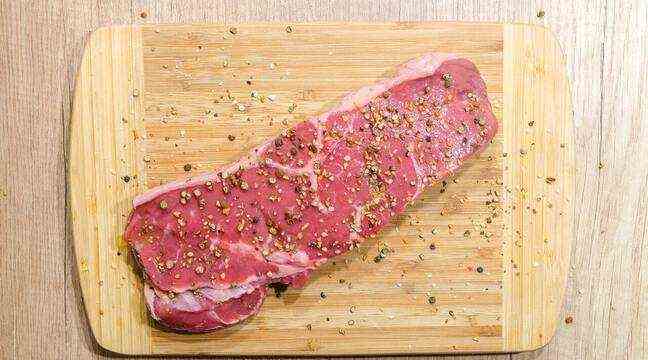Meat (illustration). – Pexels
Meat still has a bright future ahead of it in France: only a quarter of French people say they limit their meat consumption, among which a very small proportion (2.2% of the population) say they have adopted a meatless diet, according to a study carried out at the end of 2020 by the Ifop institute among 15,001 people on behalf of FranceAgriMer.
“The attachment to meat is still marked: 89% of French people say they like the taste of meat, 90% think that we can eat meat and respect animal welfare, 79% consider that eating meat is necessary to be in good health, ”detailed Grazyna Marcinkowska, consumer research officer for FranceAgriMer.
68% of respondents believe that we consume too much meat in France
“However, some questions are being felt”, she adds, indicating that “68% of French people agree with the idea that in France we eat too much meat”, for health issues and / or environmental impact.
Despite these challenges, only 2.2% of French people say they have adopted a meatless diet, that is to say pescetarian, vegetarian or vegan / vegan and 24% of French people declare themselves flexitarians (the fact of voluntarily reducing their meat consumption). The remaining three quarters declare themselves omnivorous, and therefore eat everything.
“Among omnivores, 8% of the total population, while declaring themselves omnivores, declare that they limit meat and consume it less than once a day, we will call them unlabeled flexitarians,” however specifies Grazyna Marcinkowska.
Women more flexitarian than men, rather omnivorous
For the latter, the “too high” price of meat is the most cited reason. For followers of a meatless diet, unsurprisingly, breeding and slaughter conditions (68%) are the most cited reason. This motivation is important (56%) in the choice of flexitarians to moderate their consumption, but comes after health (62%).
The meatless and flexitarian diets “have a decidedly urban, female and graduate profile, the omnivores being predominantly men, over-represented among the inhabitants of small towns or rural areas and with a diploma below the baccalaureate”, summarizes Grazyna Marcinkowska.
The majority of people on a meatless diet are single, and the presence of children under the age of 15 is highest among omnivores. “Adopting a restrictive diet is undoubtedly more difficult when you have to reconcile these eating practices with the tastes and needs of other members of the household”, analyzes the researcher.

